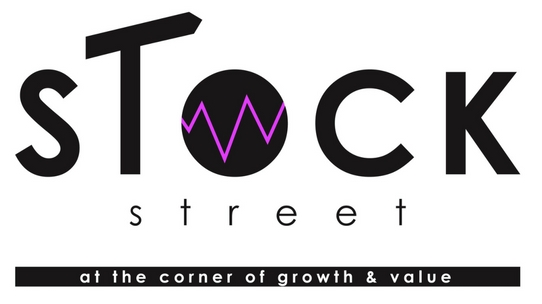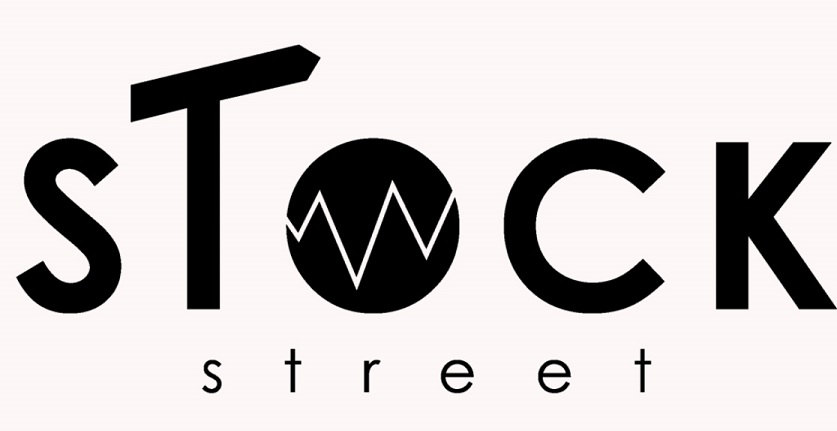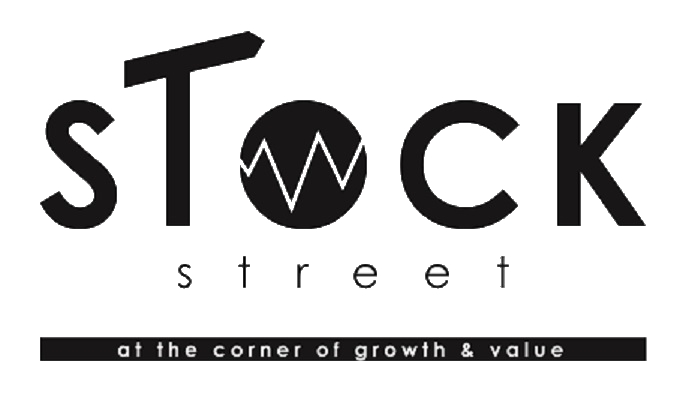There I was, the year was 2008, and I was sitting in an Italian restaurant in a Publix supermarket shopping center in central Florida. I was dressed to a T in my navy blue suit, accompanied with tie and cuff-links, as I was waiting for a prospective client.
This took place in the fall, and, for those of you who don’t remember, it was a time when the stock market was very rapidly making its descent. The great recession was coming, and we didn’t quite know how bad it was going to get.
At that time, Bear Sterns had been rescued and Lehman Brothers had just filed for bankruptcy. Faith in the banking system was rapidly decreasing daily, the housing market was in shambles, and stocks were bouncing around more than Shakira’s hips.
It was a dark time to be meeting people to talk about their finances.
I think about that meeting from time to time. It is a reminder to me of how your politics can lead you to make a decision that has nothing to do with politics. During my meeting, this prospect didn’t care about GDP, unemployment, index vs mutual funds, corporate profits, tax rates, interest rate movements….she cared only about one thing – who was going to become president.
After the election, I spoke with that prospect and, unfortunately for her – at the very least from a monetary perspective – she didn’t like the outcome of the election. This drove her to a decision – she would be leaving her money in a bank account for the time being.
Over the consecutive years, as her interest rate rapidly shot to less than 1%, she lost out on tens of thousands of dollars of lost opportunity cost by not investing at that time. She managed her money by her political leanings, and she was pessimistic about the outlook of America. It was all because she didn’t like the result of a presidential election.
Almost nine years has passed since that day, and I wish I knew then what I know now. I would have cautioned her about how the malice of politics can seep into decision making. I would have told her how, contrary to popular belief, presidents don’t have much of an impact on the economy, and that her lack of faith in America was the monetary equivalent of her rooting against it.
That moment is long gone, but now, I have something better – I have a hot blog!
So, here is my chance to talk about the topics I missed out on that day.
We will be going over President Donald Trump’s effect on the economy, why presidents take credit for the economy, and how your political leanings create malice that work against your investment decisions.
Presidents, politics, and the economy
It is true, that how an economy performs under a president can make or break a presidential term. When money stops flowing into a household due to an economic decline, the household often seeks blame. This can be for many reasons, such as, job loss, a shrinking in real wages, or a reduction in spending leading to losses in profits to small business owners. When millions of people suddenly feel the pain of financial hardship, many of those people seek answers to their pain. And, rightfully so, when you experience pain, you seek to find the source of that pain in an attempt to heal it.
The truth is, if the economy has any major problems over the next 2-3 years, the president will also have major problems in the next 2-3 years. (I’m talking even larger than his already immense problems)
This isn’t just a Donald Trump problem, but more of a “being president” problem. The president, as the leader, often takes blame for the pain. When, in reality, the president has little to do with the state of the economy (we will get to the reason behind this later).
None-the-less, in my humble opinion, a Donald Trump re-election would have very little chance fighting an uphill battle against an eroding economic cycle. It would be like if Conor McGregor actually tried to fight Floyd Maywether (wait a second, that’s about to happen).
The fact remains that, whether Donald Trump is president, Barack Obama is president, or George W. Bush is president, a very high percentage of blame will flow towards the president, either way.
Why presidents take credit for the economy
I am writing this after a horrible weekend in Charlottesville, Virginia. There are emotions gushing out of people all over the US, and I just watched Donald Trump’s news conference.
After the conference, he was asked the question, “What do you think needs to be done to overcome the racial divide?”
President Trump’s response was:
“I really think jobs can have a big impact. I really think if we continue to create jobs – over a million. substantially over a million – …I think if we continue to create jobs at levels that I’m creating jobs, I think that is going to have a tremendous impact on race relations”. [i]
Politically, a great economy is like red meat for the base of a president – it can provide a type of energy source to respond to difficult questions.
What will you do for race relations? “Create jobs, look, I’m creating jobs, I’m going to improve it.”
Why don’t you have a first dog? “Because I’m busy creating millions of jobs, you Fake news!”
See? You can use the argument for anything.
The problem with the president relying on the economy
Presidents take credit for the economy because it helps them politically. It would make no sense for a president to say a great economy has nothing to do with their leadership. And, even if they did, and the economy eventually declines, they will be blamed anyway. So might as well ride the wave while you can.
While taking credit for a great economy makes sense politically, there is a huge risk in doing so. This is because a president likely can’t prevent a recession or reshape an economic downturn.
Donald Trump isn’t Dumbledore, he isn’t Gandalf, he doesn’t have a magic wand, or magic stick, or any other magical tools to prevent a recession. If presidents could prevent or alter recessions, George H.W. Bush would have, Jimmy Carter would have, Gerald Ford would have, and they all may have served a second term in office if they had.
The problem with a president relying too much on a strong economy appears quickly as we approach a recession or economic difficulty. When job creation slows, and unemployment begins to increase, those economic talking points disappear. They slowly erode with each passing month as unemployment increases, and the population starts to turn against them – kind of like the erosion of Bill Cosby’s popularity circa 2015.
And as those in a president’s base begin to lose jobs, some of them will lay blame on the president for the pain. And, in their search for a way to heal their pain, some will check a box in the voting booth under a name that is not, Donald Trump.
Meanwhile, others in the base, in a feeling of a hopeless trance, will feel no desire to vote at all.
But, this still begs the question – if a president can’t prevent an economic downturn, what, exactly, can they do?
The president’s toolkit
Whether Obama won the 2008 election or McCain won the election – it didn’t matter in terms of where our country would go long-term economically. This is because, America works. We have an amazing system and we have been able to unlock incredible economic potential in this country. The economy is also extremely complex, and it is way more complicated than just a few little pieces that can be altered to unlock economic growth.
The impact of the president is minimal on the 5,000 plus publicly traded companies, 28+ million small businesses, and 150+ million people who show up at work each week in our country. To think one person can have such power over these three sets is disrespecting those business owners and those people going to work each week.
Maybe you feel comforted by the fact that President Donald Trump doesn’t orchestrate the economy. Maybe you will even sleep better tonight after reading this article.
Or, maybe you are defensive with the idea that the Donald Tromp hasn’t single highhandedly created millions of jobs; so maybe you are mad at me.
Whatever your response, let us talk about the main tools a president carries in his economic toolkit.
Tax Cuts
The president has a couple of tools – one main tool is that he can try and cut taxes. But, it doesn’t assure a president that unemployment growth will cease. It may temporarily cease, but it may just slow the unemployment growth rate – and for how long? It can increase the growth rate of the economy, but, if it is a strong looming recession, will tax cuts hold it off for four years? No, it will not. Will it hold it off for one year? Perhaps.
Think about it – what if Bush cut taxes in the year 2007 instead of 4-6 years prior? All else being equal, do you really think the great recession would have been prevented? I don’t think many people would take that side of the argument.
The net job growth after the Bush tax cuts in 2001 and 2003, until January of 2008 (pre-great recession) was a mere 4.5% – 7%. What is interesting about the Bush Tax Cuts is they have been the largest since WWII in terms of constant dollars. Reagan and Kennedy cut taxes, but the Bush tax cuts were higher. (taxfoundation.org)
Even though the Bush tax cuts were the largest, other two-term presidents had job growth numbers far higher than Bush. Double digit gains in net job increases include the presidencies of Reagan, Clinton, Nixon/Ford, Kennedy/Johnson.
Carter and Bush Sr. are left out because they did not serve two terms (they also experienced re-election campaigns during difficult economic times…shocker). [ii]
While tax cuts can help stimulate the economy, the economy is far more complex than just cutting taxes and watching the economy soar.
Spending
The other tool the president has is the ability to increase government spending. While this can also create new jobs and help increase the growth rate of an economy, it is estimated that it can create slightly more jobs than tax cuts. The CBO estimates 19 jobs for every 1 million spent in government spending, against 18 jobs for every 1 million in tax cuts. (It is the CBO, so, maybe, take this with a grain of salt) [iii]
After using these tools, that money is pumped back into the economy at lower tax rates. But, don’t forget about that deficit thing. You know, the one that increased during to Bush tax cuts. Those tax cuts didn’t exactly help slash the country’s debt last time around.
The economy is extremely complex and while the president does have some tools to help increase economic growth, they are not guaranteed to work. For this reason, I don’t give much credit to a president when it comes to an economy’s growth or contraction.
The president does have a handful of tools that can tweak the economy. Those tools, however, are by no means permanent and their effects are more minor than people give them credit.
Don’t bet against America.
Now you know how little credit I give to a president when it comes to economic growth. If you believe me, then you agree Obama wasn’t the main reason for tremendous job growth, and you know Trump won’t be the one to create or hinder growth, either.
If the president has little to do with economic growth, this begs the question – Why do so many people make monetary decisions based on who is president?
I have my own theory about this, and it is something I have realized, in hindsight, that I have done. It involves subconsciously betting against the American economy.
Malice and the clouding of judgement
When I was younger and I didn’t know any better, I sold off investments in order to reduce my risk. I did this because I developed a negative attitude about the country’s leadership and hence the direction of the country. This negative attitude was fueled by malice. That malice clouded my judgement, and created a biased view of our country and economy.
I did what most people do when faced with malice towards the leaders of our country – I bet against them. Or, at least, I subconsciously bet against them. By removing money from investments, I was doing so because I made a bet the economy would not improve. If the economy didn’t improve, I would come out ahead. So, subconsciously, I didn’t want the economy to improve to confirm my view.
When I shaved off my investments, it was because I developed this underlying theory about how the economy should work. Deep down, I thought that I was right about where things were heading, and that, since I am such a genius, this would lead to a terrible economy for the time being. Of course, it turns out I am no genius, and I, like most people mad at leadership, suffered from confirmation bias.
(By the way this was also wrong about the relationship between the economy and stock market, you can read my article about it here: The Stock Market is Not in A Serious Relationship With The Economy)
Confirmation Bias
Confirmation bias is defined by Investopedia as:
A psychological phenomenon that explains why people tend to seek out information that confirms their existing opinions and overlook or ignore information that refutes their beliefs. Confirmation bias occurs when people filter out potentially useful facts and opinions that don’t coincide with their preconceived notions. It affects perceptions and decision making in all aspects of our lives and can cause us to make less-than-optimal choices. Seeking out people and publications with different opinions than our own can help us overcome confirmation bias and make better-informed decisions.
My negativity towards the country was subconscious and I allowed it to seep into my financial decision making. This is all too common, and I believe if more people understood how tough America is – how our system works – they wouldn’t make mistakes like I did.
At the time, I knew that over long periods of time, the economy grows. I knew that when the stock market nose dives, it is a great time to invest. Yet, malice clouded that knowledge and confirmation bias set in. Even knowing this information, I couldn’t see straight. I couldn’t get past my emotions and I created this worldview that the economy and stock market just couldn’t possible improve at that time.
I wasn’t just wrong about the economy, it turns out I was wrong about our leadership. I eventually started seeing things differently, and I realized I had been wrong. These days, I know better than to let malice cloud my judgement.
Don’t let politics and malice guide your financial decisions
The point of this article twofold. It is to reassure readers who are mad at the president to still invest. You should still have faith in the long term potential of the American economy. You need to remember that America is great, and that it works, and that it has the ability to unlock amazing economic potential.
The article is also remind those who support the president that if events go against you in the future, don’t loose faith in America. If a recession appears and the re-election of Donald Trump fails, or if congress goes the other way in 2018, just remember not to bet against America.
It has never been a good idea to bet against the republic. No matter who you voted for, or how you see the state of the country, America is made up of more than just politicians. It is made up of millions of people who go to work each day, and millions of business owners currently trying to grow their companies.
If you are a democrat and deep down you want the economy to falter so the man at the top fails, think long and hard about what that means – it means you are betting against America. It means jobs will be lost and financial hardship will be felt. It means you may even be one of those people who suffers from that hardship. Remove this malice, because it is not healthy and will lead you to make unwise financial decisions.
And, if you are a republican, and you believe the statement, “Donald Trump created millions of jobs”, you need to take a step back. The president didn’t single handedely create millions of jobs. You can argue he saved some manufacturing jobs at a few companies, so maybe he gets credit for 2% of the net job creation at most. What you are really doing is saying that the 150+ million people working hard each week and the 28+ million small businesses have little to nothing to do with economic growth, and that it’s all in the hands of a man sitting in an oval shaped office in Washington. That, my friends, is crazy.
Thanks for reading!
The mere mention of a president’s name usually incites comments. Respectful debate is encouraged! But no propaganda, please.
Disclaimer: These are the ideas and opinions of the author. The author is not responsible for the actions of those who read the posts on this blog. Each individual reader has a unique situation and unique needs. This blog is not intended to solve those unique situations of the readers. This blog is not liable for decisions made by the readers of this blog. Disclaimer
[i] https://www.youtube.com/watch?v=xzGEyn4RhD8
[ii] https://www.google.com.ph/amp/s/www.forbes.com/sites/rickungar/2012/07/17/the-truth-about-the-bush-tax-cuts-and-job-growth/amp/
[iii] * https://www.thebalance.com/do-tax-cuts-create-jobs-3306325 , https://www.cbo.gov/sites/default/files/cbofiles/ftpdocs/118xx/doc11874/09-28-economicoutlook_testimony.pdf














